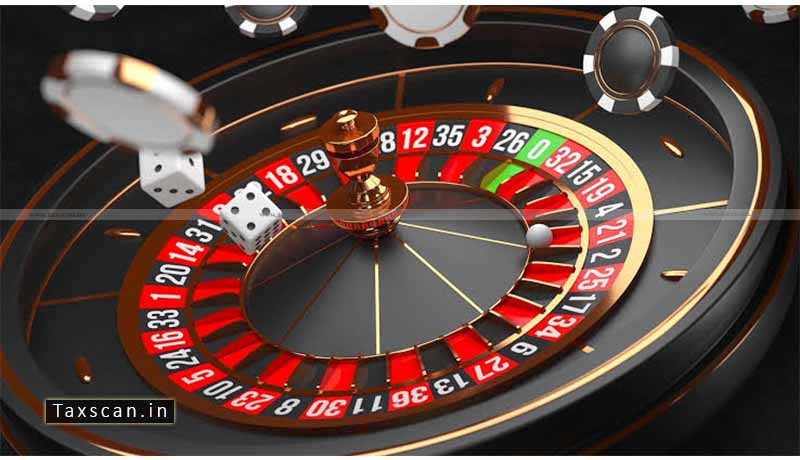Recent Trends in Casino Earnings and Taxation

taxation – casino – taxscan
taxation – casino – taxscan
Boosting gambling taxes is becoming a worldwide trend in recent years, with an increasing number of jurisdictions enforcing higher tax rates on gaming operators’ earnings as of late. One prime example is Greece where the local government has proposed changes in taxation that would significantly increase the costs for online gaming operators.
If approved, the bill would require operators to contribute the hefty €3 million for a sports wagering license and €2 million for the issuance of a permit for running online casino and poker operations. This comes on top of a proposed 35% tax on the overall revenue they generate from gambling.
Italy Seeks to Fund Its Struggling Sports Sector with Tax Raises
However, these tendencies are hardly to be observed on Greek soil only. Some countries like Italy, for example, are looking to recover their economies from the impact of the novel coronavirus by implementing new taxes on online and landbased betting operators who are already struggling amid the pandemic. Italian legislators recently passed Decree Law 34 as a means of funding the national sports system. Under the new law, betting operators’ turnover will be taxed at a rate of 0.50% until 2022.
But operators are not the only target of Italy’s government. The latter plans an increase in the tax rates on gamblers’ winnings. Italian residents who happen to pocket lottery-associated jackpots that exceed the amount of €100 million might have to pay 23% in taxes, an 11% increase from the current rates of 12%. Small-scale winners might have to pay a 12% tax on gambling-related profits under €500 if the government enforces the planned changes in taxation.
Mexico to Raise Taxes on Local and Offshore Operators
These tendencies begin to manifest themselves on the other side of the ocean as well. One prime example is Mexico where land-based gambling operators are required to spend roughly 30% of their overall income on taxes. The licensed digital gambling sector also took a hit in October of 2019 when the Mexican government announced its plans to raise the current excise tax rates of Mexico-based online gaming operators by 20%.
The idea was to place the online sector on an equal footing as the landbased one. Despite this, the Mexican online gambling market continues to attract some of the largest gaming operators worldwide. This is partially due to the fact it remains underpenetrated because many of the locals lack access to virtual payment solutions.
As of the beginning of June 2020, the Mexican government also introduced a new VAT tax rate of 16% on all foreign providers of digital services that operate within the country. Online gambling operators are among the companies that would suffer the effects of this tax increase, along with video gaming, entertainment, and transport providers the likes of PlayStation, Netflix, and Uber.
Gambling Taxation in India
Meanwhile, the situation is not much brighter in India where the gambling regulatory landscape is rather murky. Online gambling is still falling into the grey area of the law in India. This is because most states in the country do not allow for legal gambling, online or offline, except for Daman, Goa, Diu, and Sikkim. The latter is the only Indian state with legal and regulated forms of online betting. Many players are searching for additional info on the current legal gambling landscape in Goa.
Indian gamblers’ winnings are considered a taxable income but the precise percentages have varied over the years. Earnings generated via lotteries, casino games, poker, and other forms of wagering are taxed at a rate of 30%. Foreign-licensed online gambling operators must deduct this tax rate on winnings of up to ₹10,000 from the accounts of Indian-based customers.
Many Indian players are concerned about taxes. Furthermore, players from India are also expected to declare their gambling-related earnings provided that the operator fails to deduct them from their winnings. The liability falls exclusively on players in case they do not declare their gaming profits in such cases.
As for gambling operators themselves, the state of Sikkim requires them to contribute a fee of ₹1,00,000 for a provisional license that expires six months after issuance. You can find more information on this subject on the following Quora answers page.
The purpose of this permit is to allow the licensees to prepare the needed infrastructure for casino operations. Then they have to pay for a regular permit which has a validity of five years. It should be noted each state with regulated gambling has its own fee and taxation rates.
Conclusion
By far, it appears there is a global tendency toward increasing the tax rates on gambling operators as well as on the earnings of players themselves. By doing so, some jurisdictions aim at strengthening their economies and boosting their revenue. Others, like Mexico, do it to ensure an equal regulatory environment for both landbased and online casino operators.


